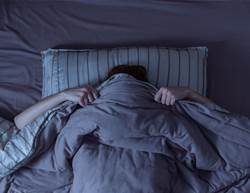Let’s face it: It sure would be nice to stop having your sleep messed with twice a year, wouldn’t it? And, as it turns out, nixing the lose-an-hour/gain-an-hour cycle could actually brighten up your overall health in a few big ways:
Your mental health may get a boost
People are less happy overall the week after Daylight Savings kicks in, research shows. What’s more, the number of people seeking help for depression spikes 8% immediately following the shift from Daylight Savings Time to Standard Time every April, according to a 2016 study published in Epidemiology. Researchers aren’t totally sure what triggers the increase, but believe moving the hour of daylight from evening to morning makes cold, dark days feel even shorter.
It could cut your stroke and heart attack risk
The sudden addition or subtraction of an hour to your day messes with your circadian rhythm, also known as your internal clock that controls your sleep and energy. As a result, research shows there’s an uptick in heart attacks the day after a time change, and an increase of stroke in the two days following.
It could even impact your ability to conceive
A 2017 Boston University Medical Center study revealed the shift to Daylight Savings Time contributes to higher miscarriage rates in in vitro fertilization (IVF) patients. More research is needed to confirm these preliminary findings, and it’s unclear whether the time change affects women who are trying to conceive naturally. Still, the results are eye-opening.
And, obviously, you’ll sleep better
It’s harder to fall asleep, stay asleep and log the expert-recommended 7 to 9 hours of shuteye for at least a week following a time change. So if the clocks were to stay consistent year-round, you’d get two extra weeks of solid sleep. An extra hour may not sound like much—but when you wake up groggy and droopy-eyed after the shift, there’s a good chance you’ll want it.










